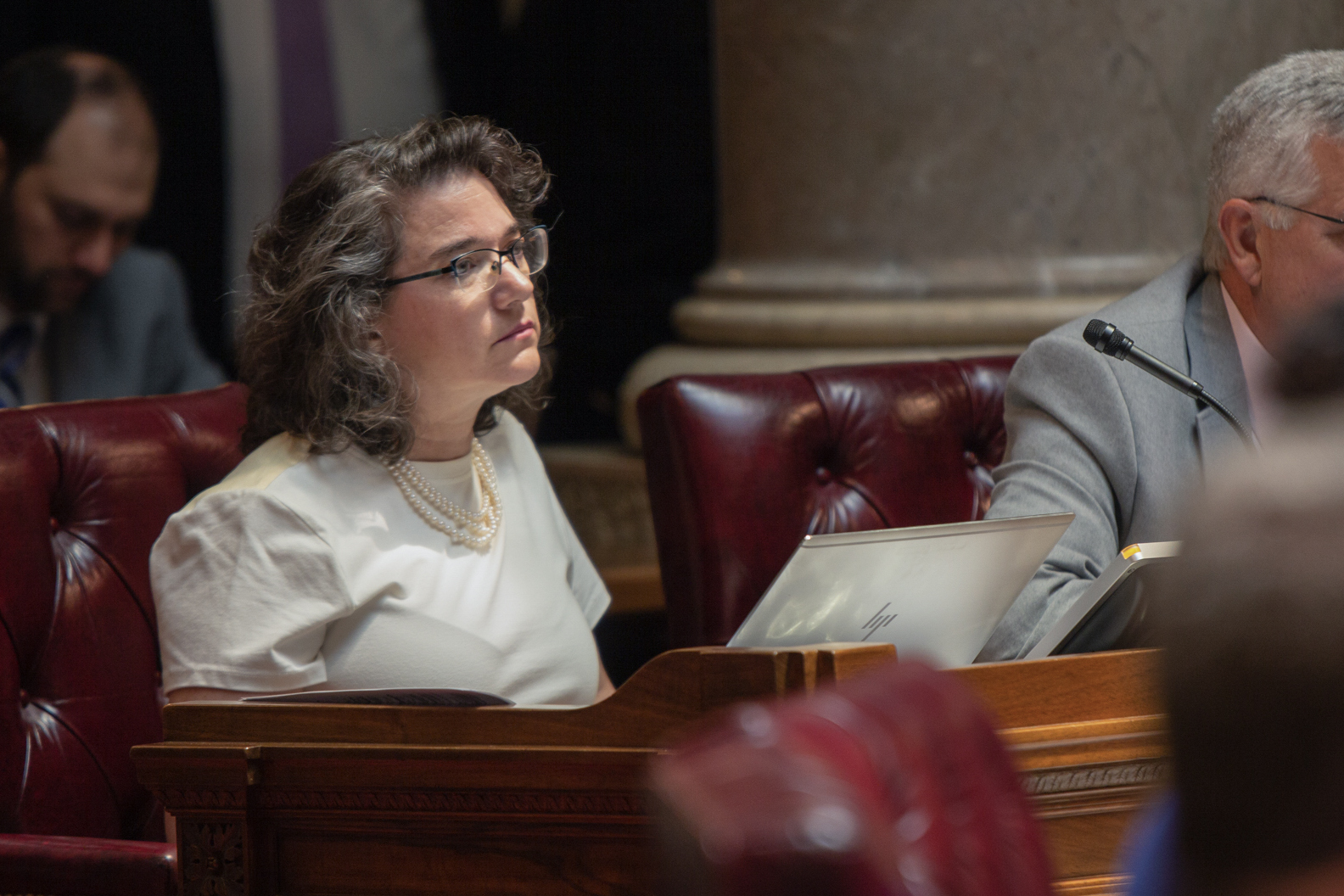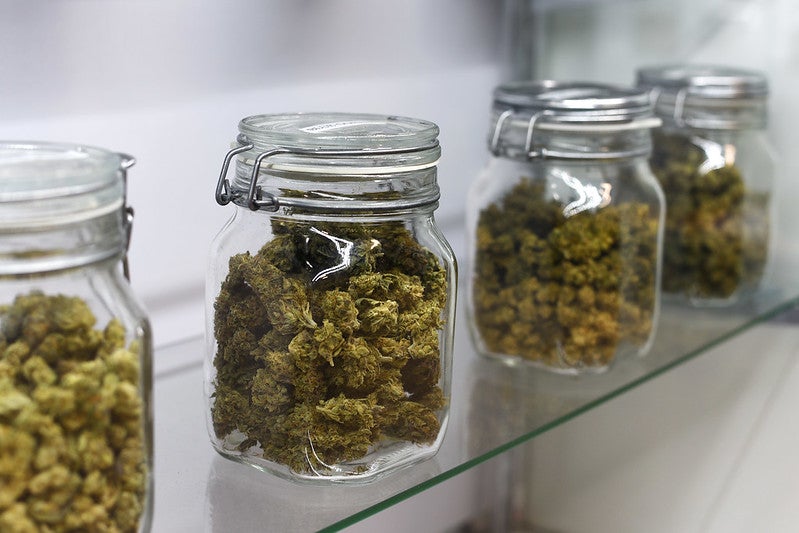For more than a decade, Wisconsin State Sen. Melissa Agard has introduced state legislation to end what she calls the “prohibition of cannabis.”
“We know that the most dangerous thing about cannabis in Wisconsin is that it is illegal,” she said.
Last Thursday, the U.S. Department of Justice proposed reclassifying marijuana as a less dangerous drug, which Agard called “exciting.”
News with a little more humanity
WPR’s “Wisconsin Today” newsletter keeps you connected to the state you love without feeling overwhelmed. No paywall. No agenda. No corporate filter.
Under federal law, marijuana is currently designated as a Schedule I drug, along with heroin and LSD, with high potential for abuse. The federal reclassification means marijuana would be designated as a lower abuse risk Schedule III drug, like Tylenol.
Agard joined WPR’s “Wisconsin Today” to explain how this federal change can create opportunities across the state, including research.
The following has been edited for clarity and brevity.
Rob Ferrett: What is your reaction to this proposal from the U.S. Department of Justice to reclassify marijuana?
Melissa Agard: It’s thrilling to see President Joe Biden and his administration grow in their perspectives regarding cannabis policy. Certainly moving from a Schedule I to a Schedule III will provide opportunity for research and development for our nation and hopefully help move the ball forward for the state of Wisconsin.
RF: What would reclassifying marijuana mean for Wisconsin?
MA: There isn’t an acknowledgment of the medicinal benefits with this rescheduling. We will have the opportunity to actually lead the policy with evidence and law and science, in order to address criminal justice concerns about cannabis policy in our nation, as well as being able to learn more about this plant that we haven’t been able to roll up our sleeves and do in our country for the last 50 years.
RF: Do you think that this could move the needle for state Republicans?
MA: The majority of folks in Wisconsin, including the majority of Republicans, support responsible adult use policy in the state of Wisconsin. The only place that cannabis reform is really controversial is within the Republican caucus of the Legislature. Even there it is split and divided.
Over the last 10 years, I’ve traveled thousands of miles, talked to thousands of people about their moral compass (on) prohibition and the effects of prohibition. It’s high time that Wisconsin reforms its policies.
I do believe that with the federal government moving forward with the rescheduling of cannabis, it will relieve some pressure on members of the Republican caucus. But that is in conjunction with the redistricting that we’re seeing in Wisconsin. I tend to think we’re going to see a lot more pragmatic decisions being made in the State Capitol.
RF: I’ve spoken to some of your Republican colleagues who are opposed to legalization or even decriminalization. I hear, “Now’s not the time to move toward loosening up restrictions on any substance.” How do you answer that concern?
MA: Cannabis is very available in the state of Wisconsin and to Wisconsin residents. Anyone who has driven to one of the border dispensaries, whether in Michigan or in Illinois, one of the first things they notice is that 90 percent or so of the cars in the parking lot have Wisconsin plates.
Additionally, because of the farm bill and loopholes, there are dispensaries all across Wisconsin that are selling products made with cannabis. Not necessarily high octane.
We have a very successful illicit market in the state of Wisconsin as well. People are able to take part in what they are choosing to take part in. We’re not introducing a new substance. What we are trying to do with this legislation, whether it’s through the state, with my bill, or with the work that President Biden is doing, is lead our nation forward to address the failed war on drugs and failed policies.
We are actually trying to provide more consumer protections and also address many of the long-standing injustices and historical wrongs that have been planted into the fabric of our nation with cannabis prohibition.
RF: This federal proposal includes a White House Office of Management and Budget review, a comment period and an administrative judge review. Will you be commenting yourself and encouraging others to do so?
MA: Absolutely. I have regulations and parameters for responsible adult use policy with the medicinal component. It’s vitally important in order for our democracy to work, that everyone lean in and use their positions and their voices to paint the picture of what cannabis prohibition has done to our nation, for example, injustices in the criminal justice system. This is opening up opportunities for our farmers and our agricultural heritage in the state of Wisconsin, and investing in our main streets.
There are a lot of reasons why this is an exciting time and frankly I would wish that the Justice Department proposal went a little bit further. But I think with this message, there is an acknowledgment that folks in our nation want this to happen. Yes, government oftentimes takes much longer than what we would hope. But the fact that the wheels are turning in the right direction here is exciting.
I hope that people continue to share their stories with the Biden administration as well as with the state legislature, so that we can cross the finish line here.







